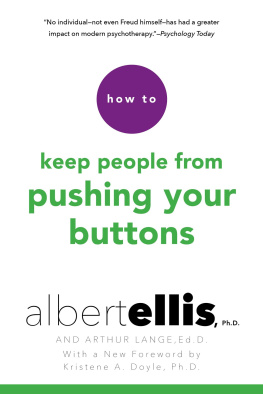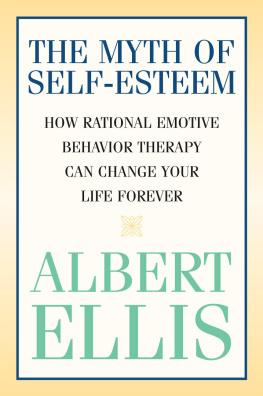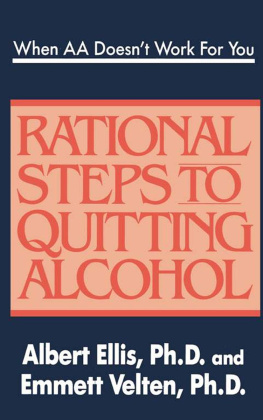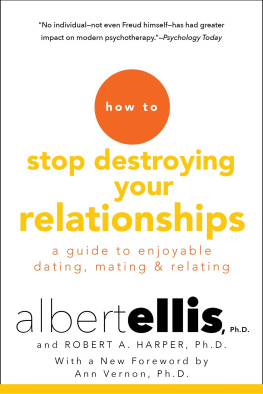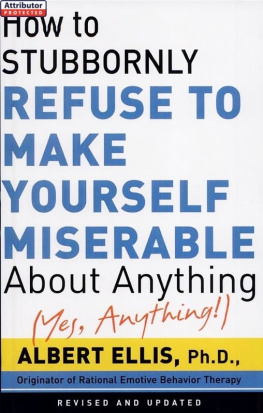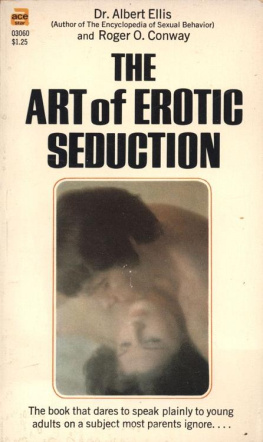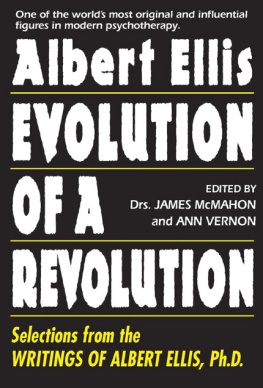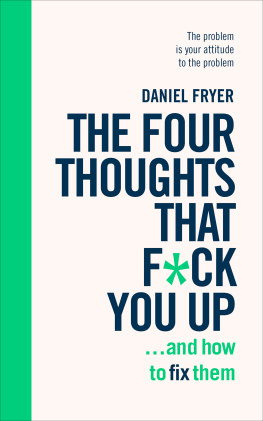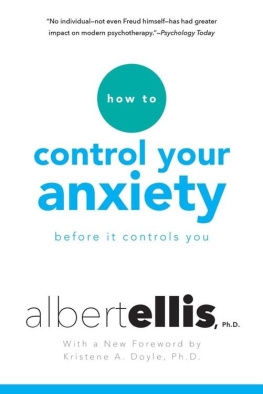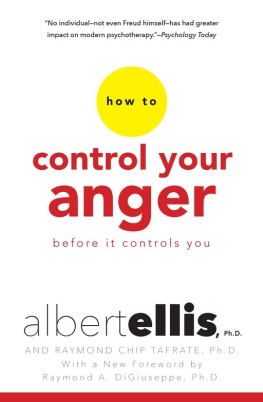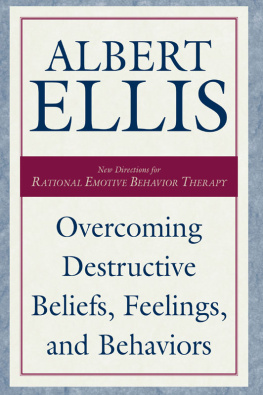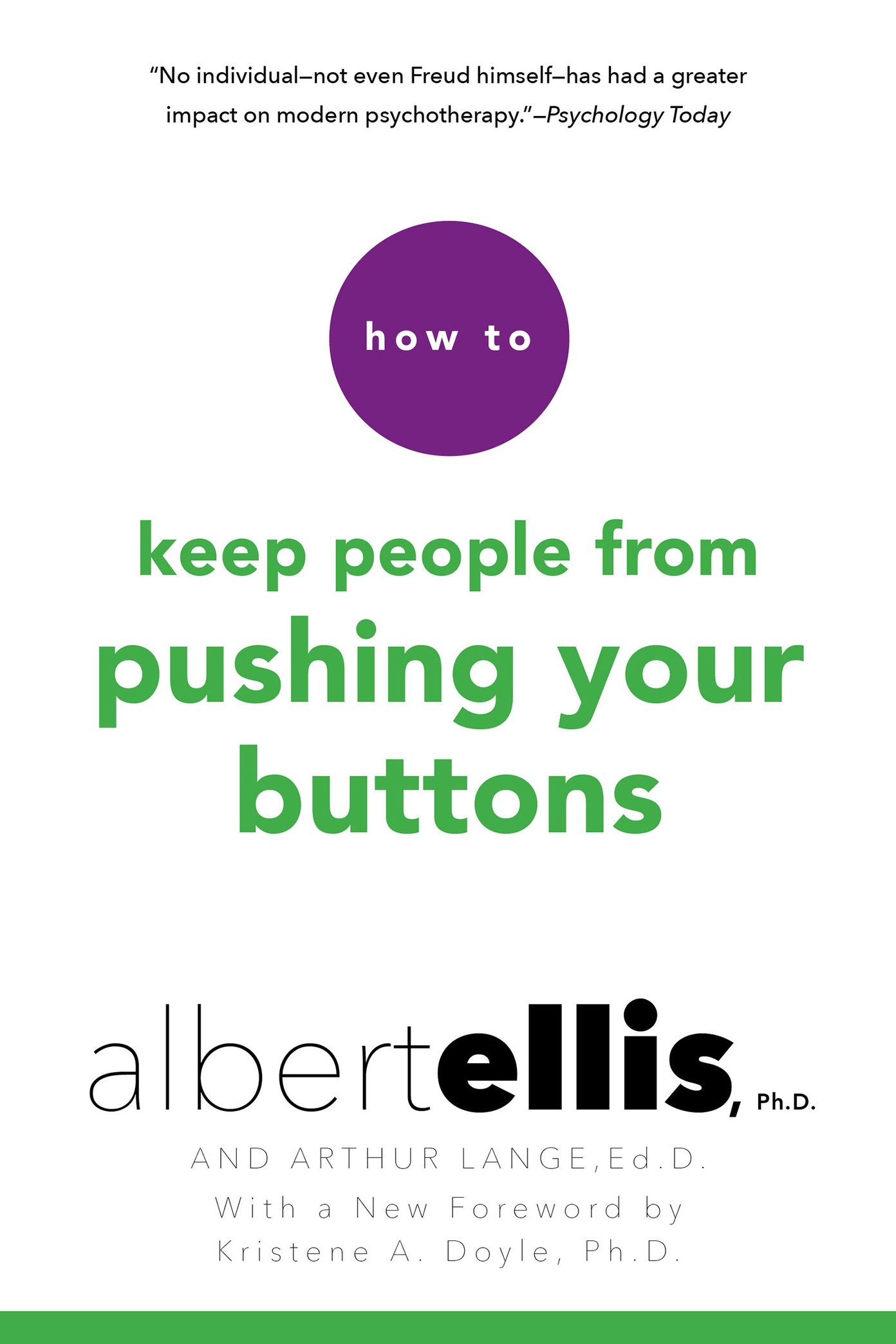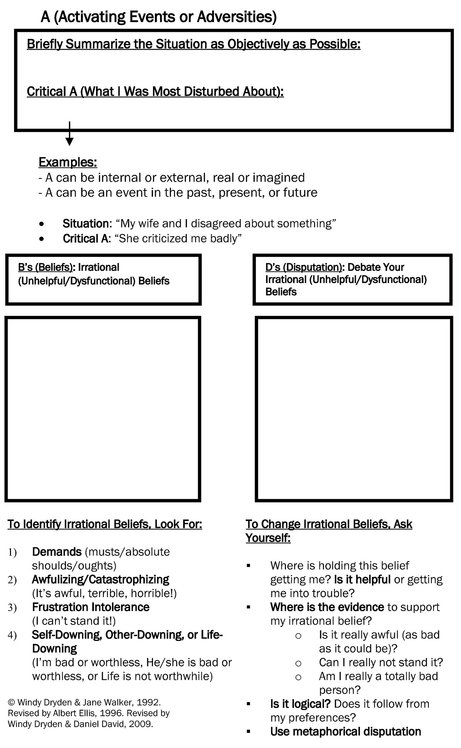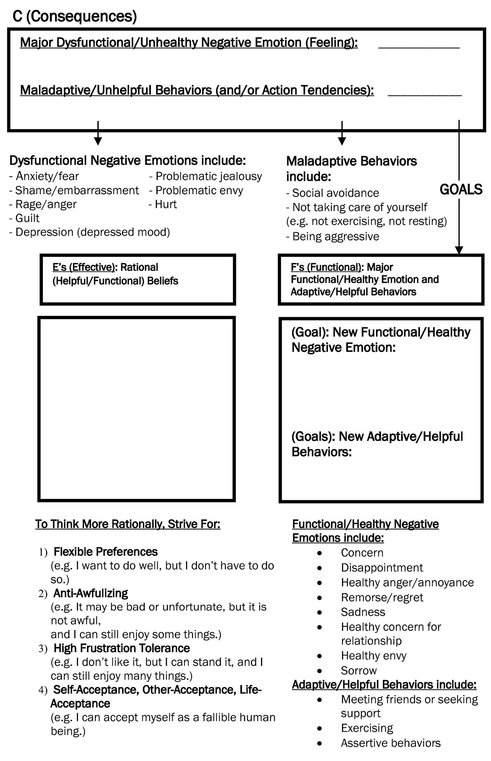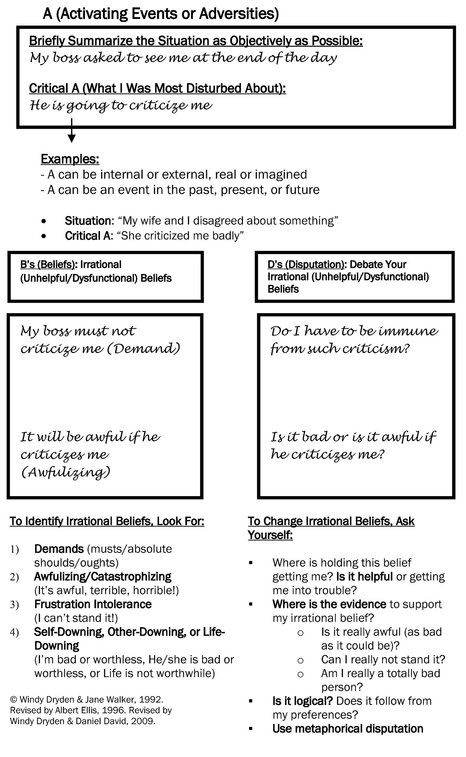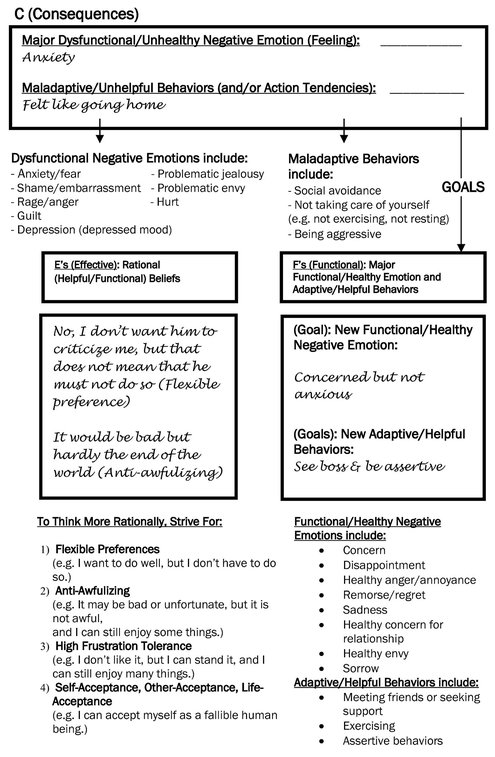About the Authors
A LBERT E LLIS , Ph.D., founded Rational Emotive Behavior Therapy (REBT), the pioneering form of the modern Cognitive Behavior therapies. In a 1982 professional survey, Dr. Ellis was ranked as the second most influential psychotherapist in history. His name remains well known among psychologists, students, and historians around the world. He published over seven hundred articles and more than sixty books on psychotherapy, marital and family therapy, and sex therapy. Until his death in 2007, Dr. Ellis served as President Emeritus of the Albert Ellis Institute in New York, which provides professional training programs and psychotherapy to individuals, families, and groups. To learn more, visit www.albertellis.org .
A RTHUR L ANGE , Ed.D., received his doctorate from American University and completed a postdoctoral internship at Southern Illinois University. He is a diplomate of the American Board of Professional Psychology, and is a recipient of the Outstanding Teacher Award at the University of CaliforniaIrvine. The author of two other books, Responsible Assertive Behavior and The Assertive Option , as well as numerous articles and chapters, he has also made more than a dozen professional films and videos. Married and the father of three, he lives in the state of Washington.
K RISTENE A. D OYLE , Ph.D., Sc.D., is Director of the Albert Ellis Institute. Dr. Doyle is also the director of Clinical Services, founding director of the Eating Disorders Treatment and Research Center, and a licensed psychologist at the Institute. She is a Diplomate in Rational-Emotive and Cognitive-Behavior Therapy and serves on the Diplomate Board. In addition, Dr. Doyle conducts numerous workshops and professional trainings throughout the world and has influenced the growth and practice of Rational Emotive and Cognitive Behavior Therapy in countries spanning several continents. Dr. Doyle is co-author of A Practitioners Guide to Rational Emotive Behavior Therapy, 3rd edition, and co-editor of The Journal of Rational-Emotive and Cognitive-Behavior Therapy. She has served as an expert commentator for ABCs 20/20, Access Hollywood, Channel 2 and Channel 11 News (in New York). Dr. Doyle has also been quoted in prestigious publications, including The New York Times , U.S. News and World Report , and The Wall Street Journal.
Suggested Further Reading and Listening
A good many books, pamphlets, CDs, and other self-help materials follow the principles of rational emotive behavior therapy (REBT) and cognitive behavior therapy (CBT), which are the basis for the techniques presented in this book. These may often be used, by themselves or together with individual or group psychotherapy, to help you and others with your emotional and behavioral problems. We recommend the following materials, most of which are obtainable from the Albert Ellis Institute, 145 East 32nd Street, 9th floor, New York, NY 10016; (212) 535-0822. The Institutes materials may be ordered online at www.albertellis.org , by phone or by fax (212-249-3582). The Institute will continue to make available these and other materials, as well as to present talks, workshops, training practica, and other presentations in the area of human growth and rational living, and to list these on its website.
Alberti, R., & Emmons, M. (1990). Your perfect right. San Luis Obispo, CA: Impact.
Beck, A. T. (1988). Love is not enough . New York: Harper.
Bernard, M.E. (1986). Staying alive in an irrational world: Albert Ellis and rational-emotive therapy . South Melbourne, Australia: Carlson/ Macmillan; Secaucus, NJ: Carol Publishing Group.
Borcherdt, B. (1993). You can control your feelings. Sarasota, FL: Professional Resource Exchange.
Bourland, D.D., Jr., & Johnston, P.D. (1991). To be or not: An E-prime anthology. San Francisco: International Society for General Semantics.
Burns, D.D. (1980). Feeling good: The new mood therapy. New York: Morrow.
Corey, G., & Corey, M. (1990). I never knew I had a choice. Pacific Grove, CA: Brooks/Cole.
DiGiuseppe, R. (Speaker) (1990). What do I do with my anger: Hold it in or let it out? New York: Cassette recording. Institute for Rational-Emotive Therapy.
DiGiuseppe, R. (Speaker) (1991). Maximizing the moment: How to have more fun and happiness in life. New York: Cassette recording. Institute for Rational-Emotive Therapy.
Dryden, W. (1990). Dealing with anger problems: Rational-emotive therapeutic interventions. Sarasota, FL: Profesional Resource Exchange.
Dryden, W., & DiGiuseppe, R. (1990). A primer on rational-emotive therapy. Stony Stratford, England: Open University Press.
Dryden, W., & Gordon, J. (1991). Think your way to happiness. London: Sheldon Press.
Ellis, A. (1962). Reason and emotion in psychotherapy. New York: Carol Publishing Group.
Ellis, A. (1972a). Executive leadership: The rational-emotive approach. New York: Institute for Rational-Emotive Therapy.
Ellis, A. (1972b). Psychotherapy and the value of a human being. New York: Institute for Rational-Emotive Therapy.
Ellis, A. (1973). Humanistic psychotherapy: The rational-emotive approach. New York: McGraw-Hill.
Ellis, A. (1974). Technique of disputing irrational beliefs (DIBS). New York: Institute for Rational-Emotive Therapy.
Ellis, A. (1975). How to live with a neurotic: At home and at work. North Hollywood, CA: Wilshire Books. Original edition, 1957.
Ellis, A. (1976). RET abolishes most of the human ego. New York: Institute for Rational-Emotive Therapy.
Ellis, A. (1977). AngerHow to live with and without it. New York: Carol Publishing Group.
Ellis, A. (1985). Overcoming resistance: Rational-emotive therapy with difficult clients. New York: Springer.
Ellis, A. (1988a). How to stubbornly refuse to make yourself miserable about anythingYes, anything! New York: Carol Publishing Group.
Ellis, A. (1991). Achieving self-actualization. In A. Jones & R. Crandall (Eds.). Handbook of self-actualization. Corte Madera, CA: Select Press.
Ellis, A. (1992). Foreword. In P. Hauck (Ed.). Overcoming the rating game (pp. 14). Louisville, KY: Westminster/John Knox.
Ellis, A., & Becker, I. (1982). A guide to personal happiness. North Hollywood, CA: Wilshire Books.

